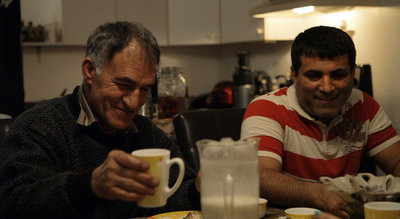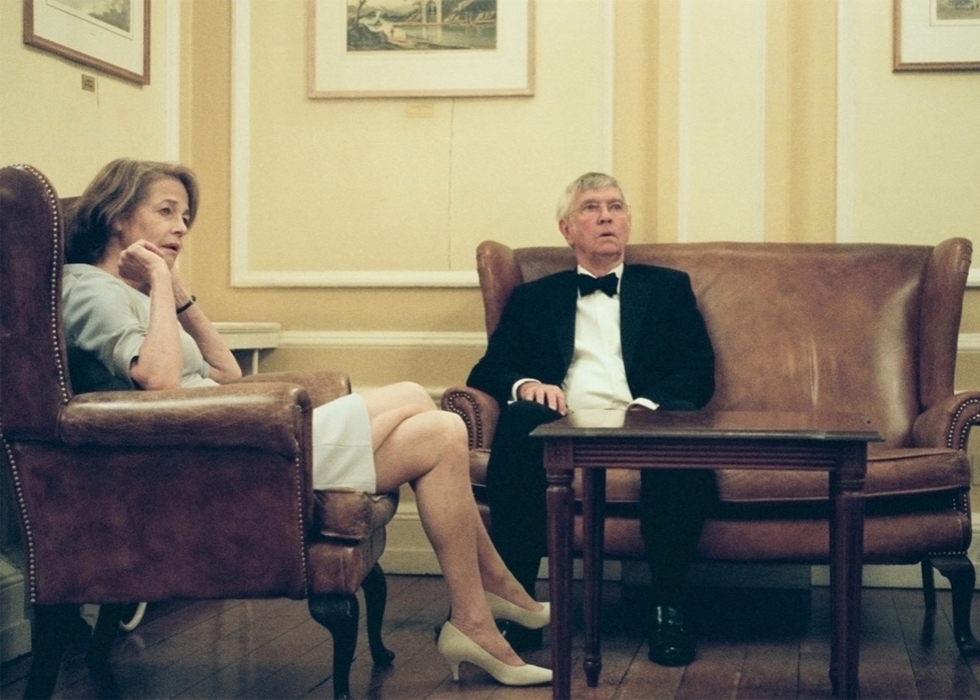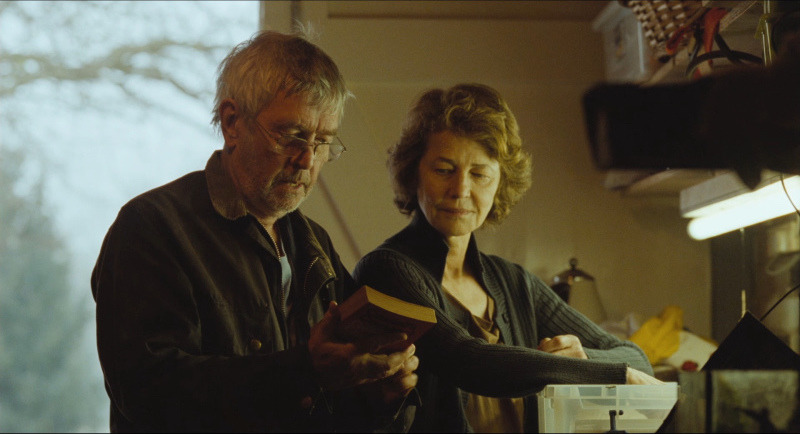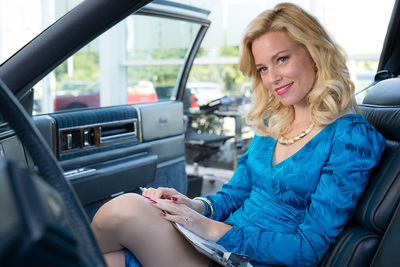
BY MATTHEW ENG |
Few Deserve Oscars More This Year Than 45 YEARS' Charlotte Rampling and Tom Courtenay
Unimprovable performances from two unimpeachable performers.

45 Years is Andrew Haigh's long-awaited follow-up to 2011's intensely absorbing chamber drama Weekend, a quiet, character-driven masterpiece of contemporary queer cinema that should be watched by anyone searching for the decade's most criminally undersung best.
In his latest, Haigh re-focuses the incomparable intimacy of Weekend—and his recently cancelled HBO dramedy Looking—to another stirring and deeply personal two-hander. In the shattering 45 Years, Berlinale acting champions and British acting icons Charlotte Rampling (who, by all means, needs an Oscar nomination this Thursday) and Tom Courtenay (ditto) give two of the year's most unmissable performances as Kate and Geoff Mercer, a retired English couple whose comfy country life is irreversibly interrupted by a shocking discovery from Geoff's past that arrives within days of a celebration for their 45th wedding anniversary.

From The Moody Blues to The Turtles, pop standards of the past play an evocatively prominent role in 45 Years, but none more so than The Platters' famously spellbinding rendition of "Smoke Gets in Your Eyes,” a show tune-turned-jazz standard about the confused, blinding power of new and "true" love, which is sure to become synonymous with the breathtakingly extended scene that it scores, a moment of sustained and utterly galvanizing actressy power that is far too shattering to give away.
I'll digress, other than to say that it's an emotionally-walloping kick in the pants that is infinitely more thrilling in its stark simplicity and fundamental humanity than any multi-million-dollar special effect Hollywood could ever devise. Once you've actually witnessed it, there's no possible way to forget it or to prevent your mind from drifting back to it in order to work over every minute, magical shift in Rampling's extraordinarily mysterious face, a sliding mask covering a vulnerably open wound.
The Platters' cover of "Smoke" would make for a spine-tingling listening experience in any movie, but pairing it with a muted, modern-day drama about the remnants of the past suddenly and irreparably blazed into the present is at once deceptively tough-minded and poignantly nuanced, just like the jewel of a film it's scoring.

